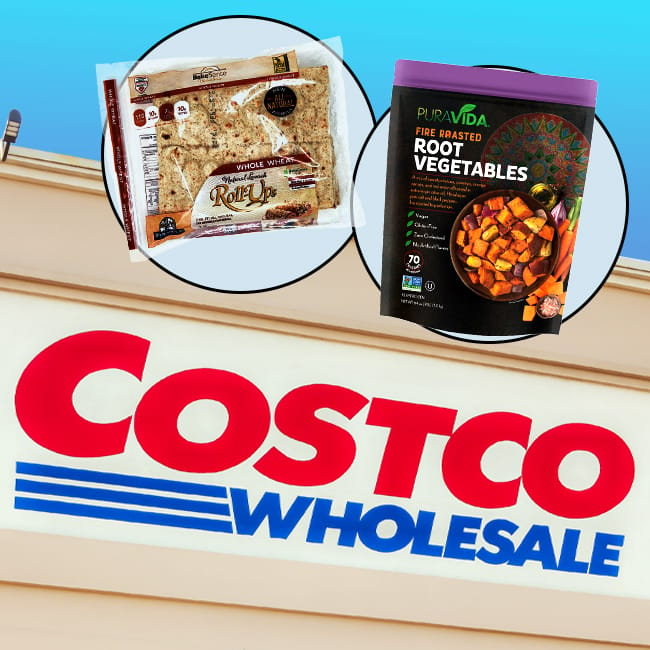The digestive system plays a vital role in breaking down food, absorbing nutrients, and eliminating waste. However, when certain foods disrupt this process, they can cause bloating—a common condition marked by uncomfortable fullness, gas, and abdominal distension. Foods that are highly processed, high in sugar, or difficult to digest can exacerbate bloating by contributing to gas production, slowing digestion, or irritating the gut.
We checked in with several health experts to uncover the six worst packaged foods to avoid because they exacerbate indigestion and lead to bloating. They revealed that processed meat, instant noodles, and soda are some of the worst options. Read on to learn more.


1. Processed Meat With Added Sugar
The combination of processed meats with added sugars exacerbates the inflammatory response in the body. The excessive consumption of added sugars can lead to spikes in blood sugar levels, triggering inflammatory pathways and contributing to chronic inflammation. Moreover, processed meats are often loaded with salt to enhance flavor and extend shelf life. Excessive sodium can cause water retention, leading to bloating and a feeling of heaviness.
Jacek Szymanowski, PN-certified nutritionist and health coach, says, "Some processed meat, particularly those in marinades such as teriyaki chicken and barbecue ribs, may contain added sugar. Excess sugar consumption causes inflammation and may lead to weight gain over time."

2. Frozen Meals
Similarly to processed meats, many frozen meals are packed with sodium to enhance flavor and preserve freshness. Excess sodium can cause water retention, leading to bloating. They also contain artificial preservatives, flavorings, and stabilizers that can irritate the digestive tract and disrupt the gut microbiome.
Jesse Feder, RDN, CPT, elaborates and says that "low-fat frozen dinners are marketed as healthy dinners; however, they still contribute high amounts of sodium and preservatives and are usually not satiating enough to only have one. This can lead to overeating, increases in weight, and inflammation throughout the body."

3. Packaged Snacks
Packaged snacks such as chips, candies, and cookies contain trans fats or unhealthy cooking oils that are difficult for the body to break down, leading to slow digestion, gas, and bloating.
Things like potato chips are "traditionally processed and fried with added sodium or artificial flavors," registered dietitian Trista Best says. "The consumer may also use [high-fat] dips or cheeses when eating them and is likely to mindlessly eat them without noticing the quantity."
The lack of fiber is another major issue. Nutritionist Lisa Richards says it hinders digestion and disrupts the balance of your gut bacteria. "The imbalanced gut microbiome resulting from a diet high in sugary and processed foods can lead to gastrointestinal issues and further inflammation," she warns.

4. Granola Bars
This is another seemingly healthy snack that is actually high in processed ingredients and hidden sugars.
Dr. Krutika Nanavati states, "Often marketed as healthy snacks, granola bars can be calorie-dense due to added sugars, oils, and processed grains. Granola bars frequently contain concentrated forms of sugar like syrups and dried fruit, contributing to sugar overload and its associated gut health issues. Many granola bars use refined grains instead of whole grains, lacking fiber and promoting blood sugar spikes, potentially leading to weight gain and increased hunger."

5. Diet Soda
Diet soda, often marketed as a healthier alternative to regular sodas due to its lack of sugar and low-calorie content, has gained popularity among those seeking to manage their weight. Despite being devoid of calories, artificial sweeteners used in diet sodas can disrupt the gut and lead to an imbalance, causing digestive issues such as bloating. The artificial sweet taste may stimulate cravings for sugary or high-calorie foods, potentially contributing to weight gain and the deposition of fat around the abdominal region. While further studies are needed to establish a conclusive link, it's essential for individuals to be aware of the potential effects of diet soda on digestive health and overall well-being.
Richards says, "Artificial sweeteners, such as aspartame and sucralose, which are commonly used in diet soda, have been the subject of ongoing debate and controversy regarding their potential health effects. Some studies have suggested that artificial sweeteners may be associated with a variety of health problems, including weight gain, type 2 diabetes, and an increased risk of certain types of cancer. However, other research has found no evidence of harm from the use of artificial sweeteners."
She further warns that "diet soda is not a healthy drink, and it should not be consumed in place of water or other hydrating beverages. It is also important to pay attention to the total amount of soda, including both regular and diet varieties, that you consume, as excessive intake of soda, regardless of whether it is regular or diet, has been linked to a variety of health problems, including weight gain, type 2 diabetes, and tooth decay."

6. Pre-Packaged Ramen Noodles
Ramen noodles are the perfect choice for those who want a quick, cheap meal. While the variety of flavors and its comforting taste can be appealing, there are several ways this processed product is ruining your gut.
"This pasta is highly processed and inflammatory, which can lead to gut dysbiosis and bloating," Richards warns. When your body experiences gut dysbiosis, there is an overgrowth of bad bacteria in your gut, and you may experience a range of digestive issues, like bloating, diarrhea, constipation, and cramping. The high sodium content of this food is another major culprit of bloating, as excess salt in your body causes water retention.


























